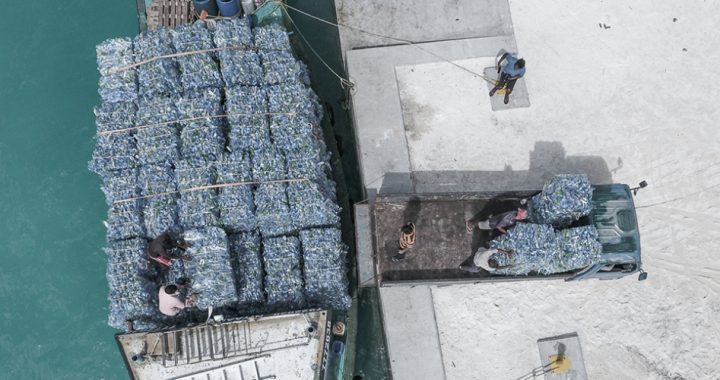
A quiet revolution is underway in Maldives, a low-lying archipelago of more than 1200 coral islands surrounded by some of the bluest water in the Indian Ocean. The nation’s small but determined population of just over a half-million refuses to allow plastic trash to continue poisoning the ocean and strangling marine life.
Residents on the island of Supported by the World Bank, this work benefits the environment and boosts the local economy.
Maldives schoolchildren attend special classes to learn about marine plastic pollution, explore their home reefs in immersive swim and snorkel programs to study their underwater inhabitantsand become Ocean Guardians. Parentsregularly join their children in theirefforts to reduce plastic waste, and prevent it from entering the oceans. Locally organized teams keep the beaches and communities clean through regular interception. Initiatives like these are just a few of the ways Parley, a global environmental organization, is realizing its vision and strategy for a future without marine plastic pollution.
According to some estimates, by 2050 the world’s oceans will contain more plastic than fish
Today, on World Oceans Day, the World Bank, Parley for the Oceans, and the South Asia Cooperative Environment Programme, an inter-governmental institution, are launching an ambitious $50 million regional project based on the Maldives example.
The Plastic-free Rivers and Seas for South Asia regional project will build on the example set by the Maldives collaboration with Parley, but on a far bigger scale. The seven other countries of South Asia generate huge amounts of plastic waste that clog major rivers and eventually flow into the ocean.
Urgent action is needed. If global plastic production continues at its current rate of about 300 million tons annually, according to some estimates, by 2050 the world’s oceans will contain more plastic than fish.


